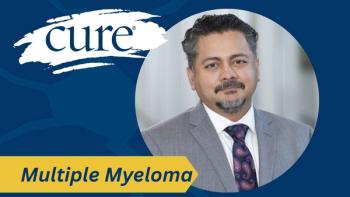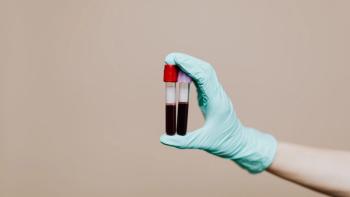
Early Study Findings Lead to FDA Breakthrough Therapy Designation for CAR-T Cell Therapy to Treat Relapsed or Refractory Multiple Myeloma
JNJ-4528 showed deep responses and proved to be safe in patients with multiple myeloma, according to CARTITUDE-1 study findings.
An investigational chimeric antigen receptor (CAR)-T cell therapy showed deep responses and proved to be safe in patients with multiple myeloma who stopped responding to other treatment or whose disease had progressed, according to study findings presented during the 2019 American Society of Hematology Annual Meeting.
Based on these findings, the Food and Drug Administration (FDA) granted Breakthrough Therapy Designation for JNJ-4528, a B cell maturation antigen (BCMA)-directed CAR-T therapy. This designation means the therapy will have expedited regulatory review and development.
“The granting of Breakthrough Therapy Designation for JNJ-4528 is a significant milestone as we continue to accelerate the global development of this innovative CAR-T therapy in collaboration with Legend Biotech,” Dr. Sen Zhuang, vice president, Oncology Clinical Development, Janssen Research & Development, LLC, the therapy’s developer, said in a press release.
The phase 1b/2 clinical trial examined the use of JNJ-4528 in 29 adult patients, with a median age of 60, who had received a median of five prior lines of treatment. Patients were given a conditioning treatment regimen of cyclophosphamide and fludarabine, types of chemotherapies, before they received a single infusion of JNJ-4528.
Of the patients who were evaluable for response, all saw a reduction in tumor burden, according to findings from the CARTITUDE-1 study. The overall response rate was 100%, with 69% achieving a complete response to therapy. At six months follow-up, 27 patients did not see their disease progress.
The therapy also showed minimal residual disease, or MRD, negativity in 100% of patients whose bone marrow samples were able to be evaluated. MRD negativity means that after treatment, a patient has less than one myeloma cell per million bone marrow cells, which could make them less likely to experience a relapse.
“We are seeing a high response rate, with most patients achieving MRD negativity,” lead study author Dr. Deepu Madduri, of The Tisch Cancer Institute at Mount Sinai in New York, said in a press release. “Considering these patients have all received multiple prior therapies, these results are extremely encouraging.”
Although CAR-T cell therapy shows great promise, side effects with this type of treatment can be severe. For instance, patients may experience neurologic toxicity, such as changes in the brain that may cause confusion or seizures, or cytokine release syndrome (CRS), which can happen when there is a rapid release of cytokines into a patient’s blood following the infusion of the genetically engineered T cells.
With JNJ-4528, 93% of patients experienced CRS at a median of a week after treatment. The side effect typically lasted four days and patients were given Actemra (tocilizumab), an immunosuppressive medication, and steroids to help treat the side effect. One patient experienced prolonged severe CRS and later died from complications. Other frequently reported side effects included neutropenia (93%), anemia (86%) and thrombocytopenia (86%).
“To see some patients in this heavily pretreated population surviving for a year or more with a one-time treatment and a manageable safety profile is remarkable,” Madduri said. “These patients feel that they have their quality of life back. They no longer have to come into the clinic for weekly treatments and some are well enough to travel.”



